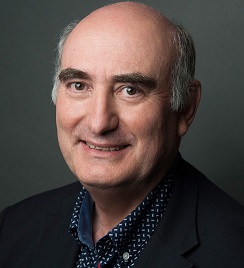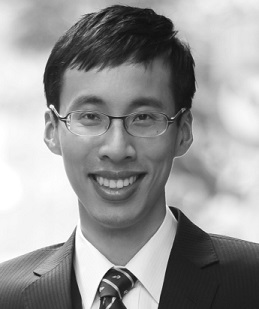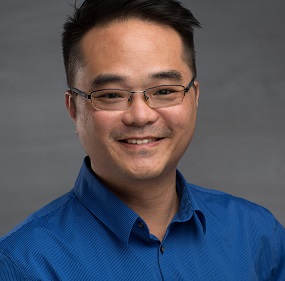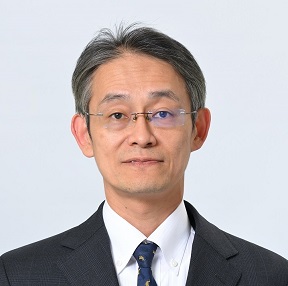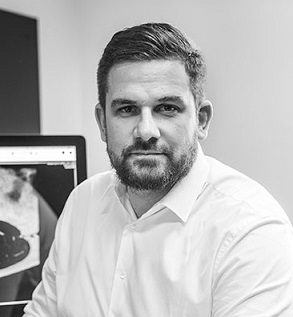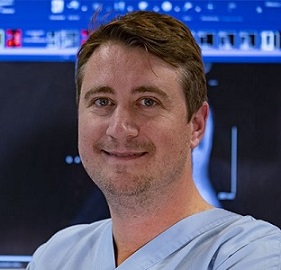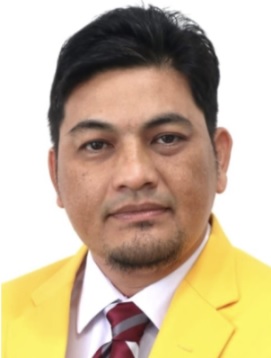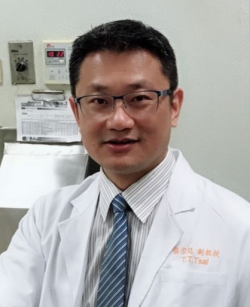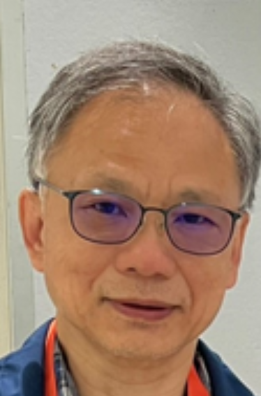
|
|
|
Keynote SpeakersPr. Jean-Charles Le Huec Professor and Chairman of Department of Orthopaedic and Traumatology, Bordeaux University Hospital Title: Safe and improved spinal surgery using a new device in multiple indications
Biography: Dr. Jean-Charles Le Huec completed all of his education in France. First at the Rennes school of medicine and then at Bordeaux university. In 1987, he was fellow in Montreal (Canada) and participated in a various research project (spine). He became a medical doctor in 1987 and got in 1990 a Master degree in Biomechanics and finally a PhD on biomaterials in 1997. In 1998, he became a full Professor of orthopaedics and traumatology. Professor Le Huec is Chief of Spine Unit and chairman of Department of Orthopaedic and Traumatology at Polyclinic Bordeaux Nord Aquitaine and professor at Bordeaux University. He is a board member of the hospital and Director of the laboratory of surgical research at the Bordeaux University School of Medicine. Prof Le Huec moved to Polyclinique Bordeaux Nord Aquitaine in 2019, where he is the chairman of the spine unit. He participates in numerous research projects about spine pathologies, biomaterials and computer-assisted surgery (national and international coordinator of european clinical researches). He has a special interest in spinal balance and alignment. He developed many devices dedicated to spine treatment. Professor Le Huec has over 140 publications in pubmed and 151 chapters in books. He has many papers referenced on medline, OVID etc, and participated in many journals, books, chapters and a special skill for education in the European Spine Society and Foundation, ISASS and SFCR.. He is a reviewer for OTSR, JSDT, IJSS, and deputy editor for european spine journal. Professor Le Huec is a member of the French College and Society of Orthopaedic Surgery, past president European Spine Society(SSE), member of ISSLS and of the North American Spine Society (NASS)(education committee), Spine arthroplasty society (ISASS past president), SFCR (french spine society past president).
Pr. Cheng-Wei Chen Associate Professor, Department of Electrical Engineering, National Taiwan University Title: Development of Microsurgical Robots: From Mechanism Design To System Integration
Biography: Pr. Cheng-Wei Chen received the B.S. degree in electrical and control engineering from the National Chiao Tung University, Hsinchu, Taiwan, in 2009; the M.S. degree in electrical engineering from the National Taiwan University, Taipei, Taiwan, in 2011; and the Ph.D. degree in mechanical engineering from the University of California, Los Angeles, CA, USA, in 2018. He is currently an associate professor in the Department of Electrical Engineering, National Taiwan University, Taipei, Taiwan. His research interests include robotics, mechatronics, digital control, automation, and optimization.
Dr. Chieh-Hsiao (Jerry) Chen Chief Executive Officer, Brain Navi Biotechnology Co., Ltd Title: The Next Vision in Neurosurgery
Bigraphy: Dr. Chieh Hsiao Chen is a highly accomplished individual with impressive backgrounds in both medicine and biomedical engineering. His achievements include being selected into the prestigious Stanford-Taiwan Biomedical Program in 2012, where he was sent to Stanford University to learn about the startup culture in Silicon Valley. During his time there, Dr. Chen, along with two other STB fellows named Alan and Carson, founded iXensor Inc., which went on to be listed on the Taiwan Stock Market in June 2019. In 2015, Dr. Chen established another startup company, Brain Navi Biotechnology Co., Ltd, where he serves as CEO. Brain Navi is focused on developing innovative navigation systems for brain surgery. The company has been recognized for its groundbreaking work, having been announced as one of the winners of the National Innovation Award in 2017, 2019, 2020, and 2021. One of Brain Navi's most significant achievements is the development of NaoTrac, the AUTOPILOT brain surgical system. This cutting-edge technology integrates advanced sensing technologies, artificial intelligence, and robots to improve the accuracy of surgical procedures, streamline surgical procedures, and decrease the learning curve for neurosurgeons. NaoTrac has received CE mark and TFDA approval and is currently under the process of FDA approval. It is being used to help neurosurgeons every day on the front lines of healthcare. At the core of NaoTrac is the use of "machine vision" technology, which is utilized for patient registration and mapping of medical images. Additionally, Brain Navi is also in the process of developing KrystoLens, a single-use neuroendoscope that is set to be announced by the end of 2023. Overall, Dr. Chen's exceptional work has been instrumental in advancing the field of brain surgery and has the potential to make a significant impact on healthcare in the future.
Pr. Kenji Kawashima Professor, Department of Information Physics and Computing, Graduate School of Information Science and Technology, The University of Tokyo Title: Surgical assist robot with grasping force feedback developed by a Japanese university venture
Biography: Kenji Kawashima received the Ph.D. degree in engineering from the Department of Control Engineering, Tokyo Institute of Technology, Tokyo, Japan, in 1997. From 1997 to 2000, he was a Research Assistant with the Tokyo Metropolitan College of Industrial Technology. He was an Associate Professor with the Precision and Intelligence Laboratory, Tokyo Institute of Technology. From 2013 to 2020, he was a Professor with Tokyo Medical and Dental University. In 2014, funded University Start-up Riverfield Inc. Since April 2020, he has been a Professor with The University of Tokyo. His research interests include medical robotics, control engineering, and fluid measurement and control.
Dr. Rémi Mariey Orthopedic and Trauma Surgeon, Private Hospital of Saint-Martin Title: One year after, our new life with mazorX : what's cool, what's missing, our wishlist for future surgical robots
Dr. Tanguy Vendeuvre Orthopedic and Spine Surgeon, Poitiers University Hospital Title: The benefits of AI and finite element simulation for trauma planning
Pr. Irwansyah Associate Professor, Department of Mechanical Engineering, Universitas Syiah Dean, Faculty of Engineering, University Teuku Umar Title:"Virtual Bone Reduction use of 3D Registration Technique"
Biography: Irwansyah receives the Graduate degrees from the Mechanical Engineering Departments, Universitas Syiah Kuala, Indonesia, and the Master of Engineering degree in Design and Manufacturing Engineering at Asian Institute of Technology, Thailand. He receives Doctoral degree in Mechanical Engineering Department from National Central University, Taiwan. He is currently an assistant professor at Mechanical Engineering Department, Universitas Syiah Kuala. He also actively participates as a member in Machine Design and mechanical Laboratory to offer several supporting efforts in research development, educational teaching and community service. He researches works currently interested in Engineering Design, Biomechanics and Biomedical image processing, Precision Measurement system and Medical assistive Devices. He is also pointed as Dean of Faculty of Engineering at University Teuku Umar.
Dr. Tsung-Ting Tsai Professor, Chang Gung University Orthopedic and Spine Surgeon and Chief of Department of Orthopaedic Surgery, Chang Gung Memorial Hospital Title: "Automatic Landmark Detection and Alignment Analysis in Whole-Spine Lateral Radiographs"
Dr. Shih-Lin Wu Professor, Department of Computer Science and Information Engineering, Chang Gung University Adjunct Research Fellow, Department of Neurosurgery, Chang Gung Memorial Hospital Title: "3D Pedicle Screw Path Planning and Augmented/Virtual Reality Navigation for Cervical Spine Operation"
Biography: Shih-Lin Wu received the Ph.D. degree in computer science and information engineering from National Central University, Taiwan, in 2001. He was the Chairman of the Department of Computer Science and Information Engineering, Chang Gung University (CGU), from 2007 to 2011 and from 2016 to 2018. He was the Direct of AI Innovation Center, CGU, since 2018-2020. His current research interests include mobile/wireless networks, Internet of Things, artificial intelligence, and big data analysis. He was a Program Chair of Mobile Computing in 2005 and the International Workshop on Data Management in Ad Hoc and Pervasive Computing in 2009, a Co-Chair of the International High Speed Intelligent Communication in 2009 and the International Symposium on Bioengineering in 2011, a General Chair of Mobile Computing 2012, a Co-Chair of the International High Speed Intelligent Communication and International Conference on Computational Problem-Solving in 2013, and a Program Chair of the International Computer Symposium in 2016. He serves as a member of the Editorial Board for Telecommunication Systems, and International Journal of Ad Hoc and Ubiquitous Computing. |
